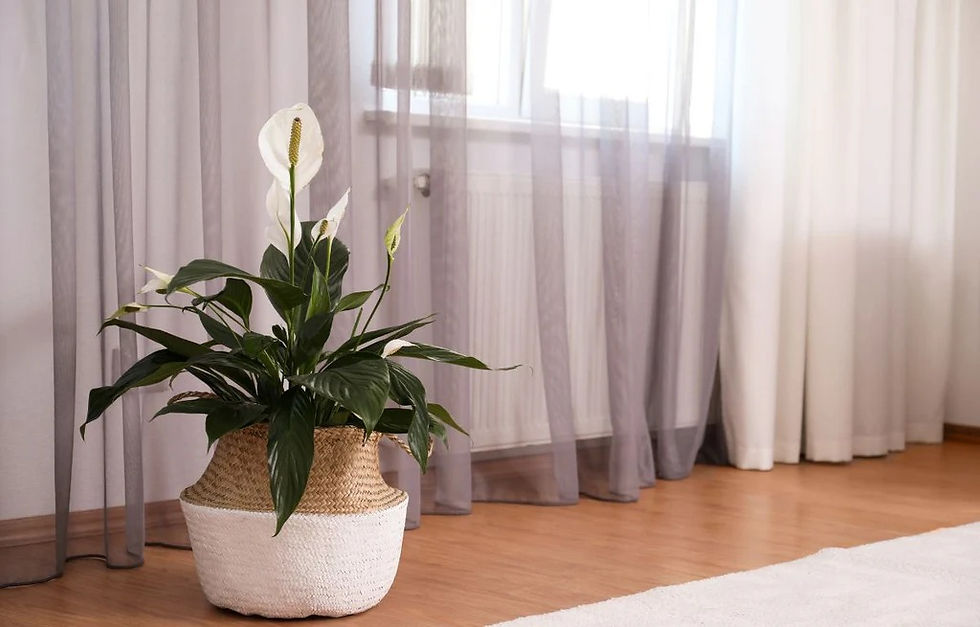The Important Role of Bees and How Floragard® Can Help Protect Them
- Norsag

- May 24, 2024
- 3 min read
Updated: Nov 14, 2025

The Threats to Bees: A Crisis in the Making
Unfortunately, bees are facing an alarming decline, driven by several human-induced factors:
Human Activities: Urbanization, pollution, and the widespread use of pesticides have severely disrupted bee habitats.
Large-Scale Land Use: Monoculture farming practices reduce the diversity of plants that bees need for nutrition.
Globalization: The spread of diseases and pests, often facilitated by global trade, threatens bee populations.
Climate Change: Altered weather patterns and extreme temperatures affect bee behavior and their ability to find food.
The Importance of Bees
Bees are indispensable to the environment and human agriculture. They pollinate approximately 75% of the crops that feed 90% of the world’s population. This includes fruits like apples and berries, vegetables such as onions and avocados, and even coffee. The extinction of bees would lead to a catastrophic food crisis, drastically reducing the availability of these essential foods.
But the impact doesn't stop with humans. Many animals rely on plants that are pollinated by bees for food and habitat. The loss of bees will cause broader biodiversity loss and the collapse of ecosystems.
The Dire Consequences of Bee Extinction
The extinction of bees would spell disaster for humanity and the natural world.
The direct consequences include:
Food Shortages: A significant reduction in crop yields, leading to shortages of fruits, vegetables, and other foods dependent on bee pollination.
Economic Impact: The agricultural sector would suffer immensely, leading to higher food
prices and economic instability.
Biodiversity Loss: The decline of bee-pollinated plants would disrupt ecosystems, affecting countless other species and leading to a reduction in biodiversity.
How We Can Help
Protecting bees is not just the responsibility of farmers or environmentalists; it’s something we all can contribute to. Here are some practical steps:

Buy Organic: Support farming practices that avoid harmful pesticides and promote biodiversity.
Plant Flowers and Plants: Create bee-friendly environments by planting a variety of flowers and plants that provide nectar and pollen throughout the year.
Buy Local Honey: Supporting local beekeepers helps maintain healthy bee populations and local ecosystems.
Do Not Kill Bee Hives: If you encounter a bee hive, contact a local beekeeper or pest control company that can relocate the hive safely instead of destroying it.
How Floragard® Helps Save the Bees
Floragard® is deeply committed to environmental sustainability and the protection of bee populations.
Here are specific ways Floragard® contributes to bee conservation:
1. Providing Bee-Friendly Products
Floragard® offers a range of products specifically designed to create environments where bees can thrive.
These products include:
Organic Soil Mixes: Floragard® organic soil blends are free from synthetic pesticides and fertilizers, reducing the risk of chemical exposure to bees.
Specialized Plant Mixes: These include seed mixes designed to attract and nourish bees. By planting Floragard® bee-friendly flower mixes, gardeners can ensure a continuous supply of nectar and pollen for bees throughout the growing season.
2. Promoting Sustainable Gardening Practices
Floragard® advocates for and educates gardeners about sustainable gardening practices.
Avoiding Harmful Chemicals: Floragard® products are formulated to eliminate the need for synthetic pesticides and fertilizers, which are harmful to bees. Instead, they offer organic alternatives that protect plant health without compromising bee safety.

Encouraging Biodiversity: Floragard® promotes planting a variety of flowers and plants that bloom at different times of the year, providing a continuous food source for bees. Their products support the growth of a diverse garden ecosystem.
Practical Steps to Support Bees with Floragard®
Here are practical ways gardeners can use Floragard® products to support bee populations:
Plant Diverse, Bee-Friendly Flowers: Use Floragard® organic soil and bee-friendly flower seed mixes to grow a variety of plants that provide bees with a continuous source of nectar and pollen.
Avoid Chemical Pesticides: Choose Floragard® organic pest control products to keep your garden healthy without exposing bees to harmful chemicals.
Bees are crucial to our ecosystem and food supply. Their decline due to human activities, large-scale farming, globalization, and climate change threatens biodiversity and agriculture, leading to potential food shortages and economic instability.
We can help by supporting bee-friendly practices. Floragard® offers organic soil mixes and plant seeds that promote healthy bee populations. Their products and educational initiatives encourage sustainable gardening and biodiversity.





Comments